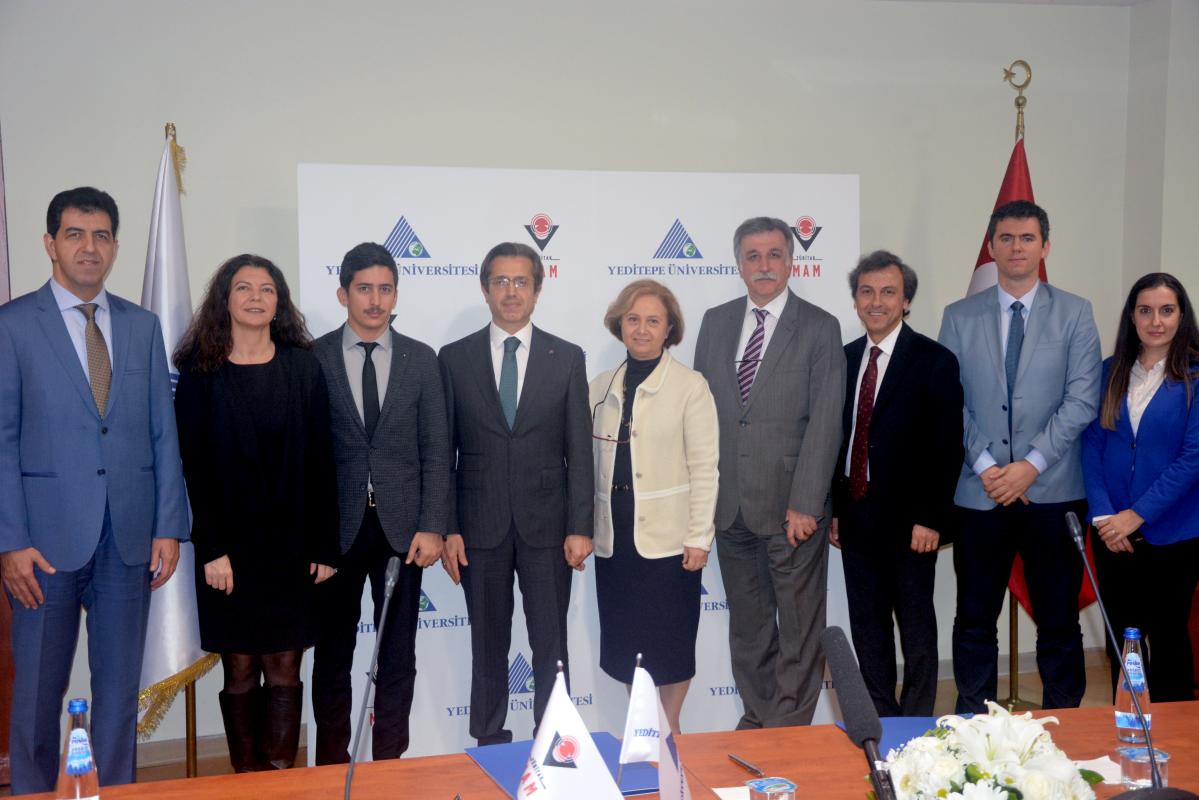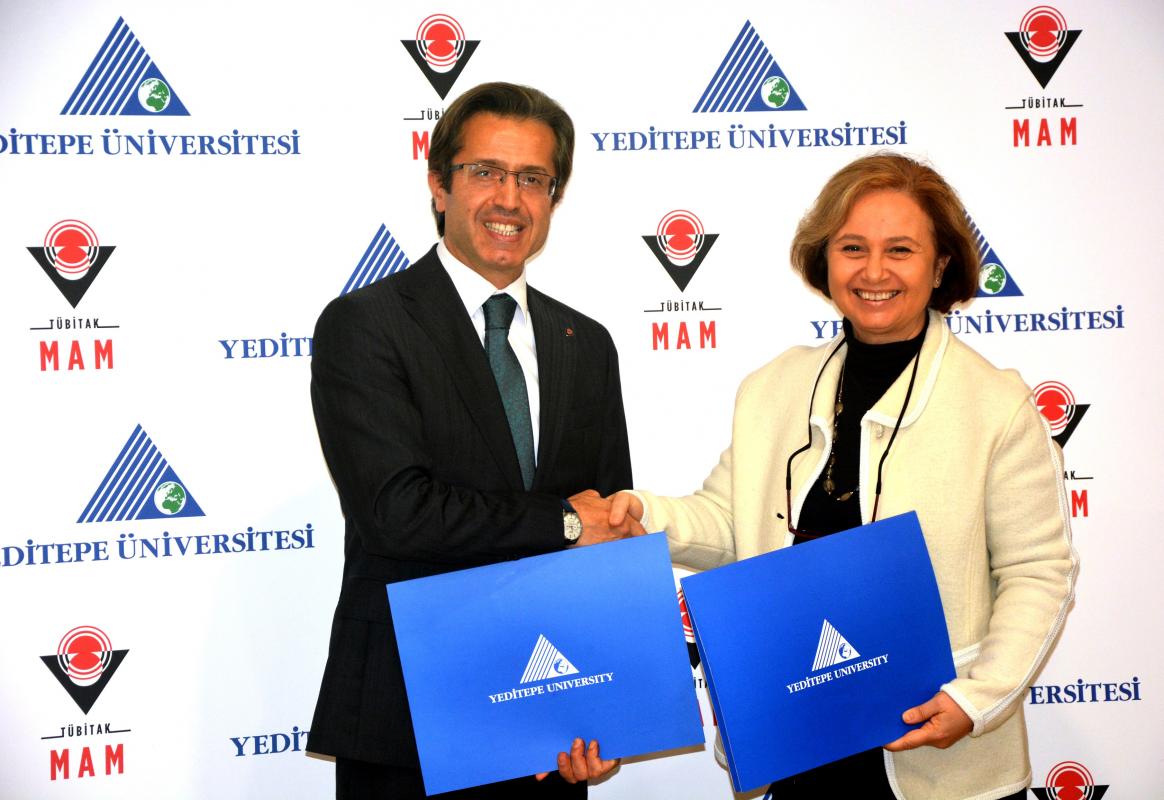Scientific Collaboration between Yeditepe University and TÜBİTAK MAM

The cooperation protocol organized by Yeditepe University and TÜBİTAK Marmara Research Center (MAM) to educate experts in the field of technology by conducting scientific, technological research and projects was signed by TÜBİTAK MAM President Prof. Dr. İbrahim Kılıçaslan and Yeditepe University Rector Prof. Dr. Canan Aykut Bingöl.
Speaking at the signing ceremony held at Yeditepe University, TÜBİTAK MAM President Prof. Dr. İbrahim Kılıçaslan stated that there are ten perfection centers and 14 pilot facilities belonging to TÜBİTAK MAM and these centers are in the service of universities and the industry. Prof Dr. Kılıçaslan said, "Founded in 1972, MAM is working on applied R & D studies. We have a strong infrastructure, and we need to share it. This cooperation protocol is highly important as it will allow projects to be created together".

Rector Prof. Dr. Canan Aykut Bingöl stated that Yeditepe University made a high amount of investments on its infrastructure since its establishment and emphasized that this would be a beneficial collaboration for both sides. Prof. Dr. Canan Aykut Bingöl said, "With this collaboration, which will combine TÜBİTAK MAM and Yeditepe University infrastructures and human resources potentials, essential projects will be conducted. I believe that this cooperation protocol is also a vital step for the transformation of projects into products.
Scientists will be trained in critical technological areas
The Cooperation Protocol aims to "train expert researchers critical for technological areas in Turkey by conducting quality, applied, scientific and technological projects and studies as well as make university students and academic members understand the demands of the industry". Within the scope of the protocol, researchers from Yeditepe University and TÜBİTAK MAM will be able to offer project proposals to national and international support programs; be able to use the existing infrastructures of both sides for qualified studies, produce publications and patents and contribute to the upbringing of scientists.